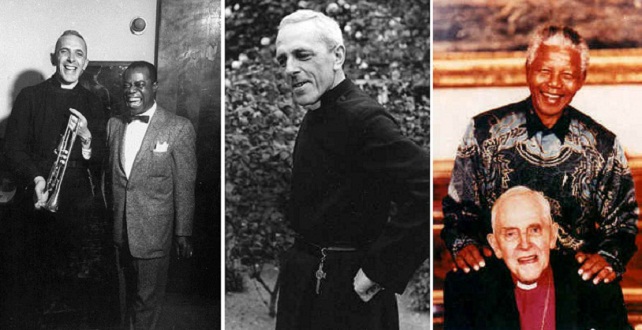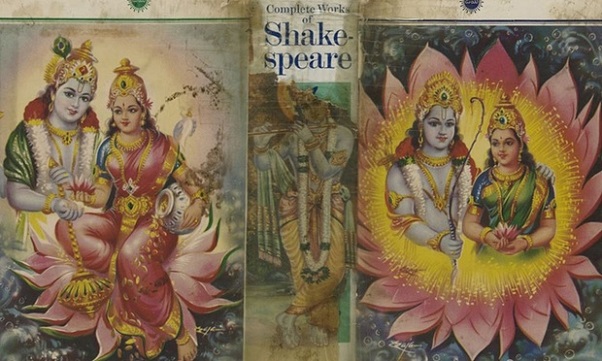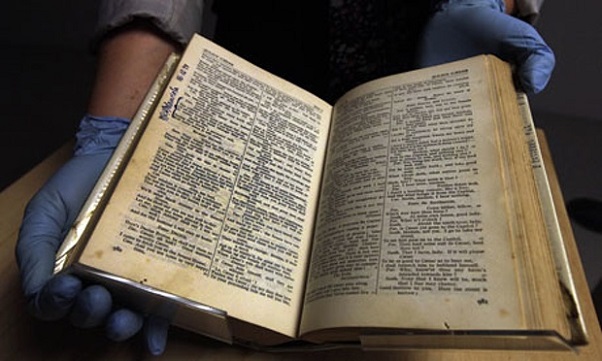Some end in ashes, some wind up in stained glass
Sunday, May 12th, 2019[ by Charles Cameron — and some, high lamas, emanations of Avalokiteshvara, become poets of the erotic.. ]
.
You know my early mentor Fr Trevor Huddleston CR? I posted three photos of him here, one with Louis Armstrong and a trumpet, one with Nelson Mandela, and one exactly as I knew and now remember and honor him:
Well, today I saw for the first time an image of the stained glass window dedicated to him in Lancing College chapel:
For more on Fr Trevor, see The Life of Trevor Huddleston, Makhalipile (the Dauntless One)
Mandela said of him:
Father Huddleston was a pillar of wisdom, humility and sacrifice to the legions of freedom fighters in the darkest moments of the struggle against apartheid.
His fearlessness won him the support of everyone. No one, neither gangster, tsotsi nor pickpocket would touch him. Their respect for him was such that they would have tried – and if they did it could have cost them their lives. His enormous courage gave him a quality that commanded the respect of the place
and:
No white person has done more for South Africa than Trevor Huddleston.
He was a giant.
**
All of which got me thinking about stained glass as an alternative destination to ashes..
Desmond Tutu was another whose life was decisively influenced by Fr Trevor — and he too can be found in stained glass:
MaryAnn Randolph writes:
This, in St. Mark’s, Minneapolis, is what is called the Peacemaker’s Window. In this magnificent stained glass you will find: Mother Theresa of Calcutta, Dr. Martin Luther King, Jr., Archbishop Tutu, Mahatma Gandhi, the Dalai Lama and many others.
Giants, all — and inspirations, inviting us to join them!
**
Ah, Gandhi-ji and the Dalai Lama — it delights me to see stained glass extending to peacemakers regardless of their religious affiliations!
I’ll leave you with an image of Green Tara, female Buddha to whom the “Great Fifth” Dalai Lama — who unified Tibet, established Lhasa as its capital, and worked to bring together the various lineages of Tibetan Buddhism together with the earlier shamanic Bon tradition — was devoted:
The Dalai Lama himself, in each of his incarnations, is considered an emanation of the Buddha of Compassion, Avalokiteshvara.
**
It was the Sixth, beloved successor of the Great Fifth, who was the rascal poet, writer of such gently erotic verses as:
This white bow in its cloth cover,
On whom shall I bestow it?
I will place it gently inside
My lover’s tiger-skin quiver.
Ah, but he’d be hard to capture in stained glass —
I’ll leave you with him and his compassion, and with the Love Songs of the Sixth Dalai Lama.
Enjoy! Delight!










